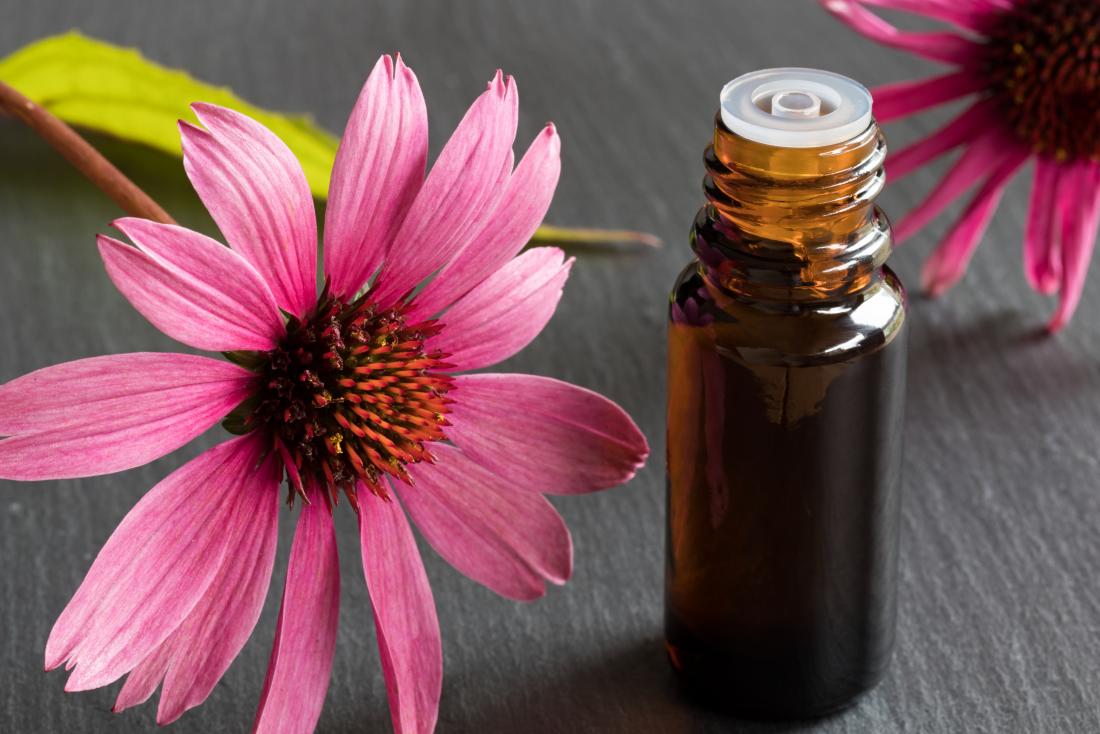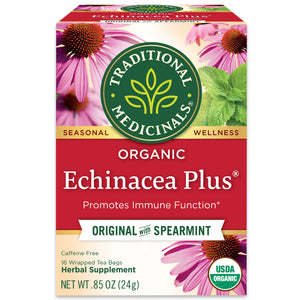I.History and Origin of Echinacea
The History and Origin of Echinacea
Echinacea is a popular herb that has been used for centuries for its medicinal properties. Native to North America, echinacea belongs to the daisy family and is also known as the purple coneflower. The Native Americans were one of the first cultures to recognize the benefits of echinacea. They used it to treat various health conditions, including infections, wounds, and as a general cure-all. In the 18th and 19th centuries, echinacea’s popularity grew in the United States, but it started to decline with the introduction of antibiotics. However, in Germany, echinacea continued to be widely used throughout the 20th century and is still popular today.
What is Echinacea and its Natural Benefits
Echinacea is a flowering plant that contains several active substances, including polysaccharides, glycoproteins, alkamides, volatile oils, and flavonoids. These chemicals work together to provide various health benefits. Here are some of the natural benefits of echinacea:
- Immune System Support: Echinacea is known for its immune-boosting properties. It helps to stimulate the production of white blood cells, which play a crucial role in fighting off infections and diseases.
- Anti-inflammatory Effects: Echinacea has anti-inflammatory properties and can help reduce inflammation in the body. This can be beneficial for conditions such as arthritis, respiratory infections, and skin conditions.
- Antiviral and Antioxidant Effects: Echinacea has been found to have antiviral properties and can help prevent and fight off viral infections. It also has antioxidant effects, which can help protect the body against oxidative stress and damage caused by free radicals.
- Wound Healing: Echinacea has been used traditionally to promote wound healing. Studies have shown that it can help enhance the production of collagen, which is essential for wound repair and tissue regeneration.
- Respiratory Health: Echinacea is often used to support respiratory health and can help alleviate symptoms of common respiratory infections, such as the common cold and flu.
- Urinary Tract Health: Echinacea has been used to support urinary tract health and can help prevent and treat urinary tract infections.
It’s important to note that while echinacea has been used for centuries and has many reported benefits, more research is needed to fully understand its effectiveness and potential side effects. It’s always best to consult with a healthcare professional before starting any new herbal supplement.
For more information about echinacea, you can visit its Wikipedia page.

II. Types of Echinacea
An Overview of the Nine Species of Echinacea
Echinacea is a group of flowering plants that are native to North America. There are nine known species of echinacea, each with its unique characteristics and properties. These species include:
- Echinacea angustifolia: This species is commonly known as the Narrow-leaved Coneflower. It is often used for its medicinal purposes and has a long history of traditional use in Native American cultures.
- Echinacea pallida: Also known as the Pale Purple Coneflower, this species is similar to Echinacea angustifolia in terms of medicinal properties. It is often cultivated for its attractive pale purple flowers.
- Echinacea purpurea: The Purple Coneflower is one of the most popular species of echinacea. It is widely used in herbal supplements and boasts vibrant purple flowers that attract bees and butterflies.
- Echinacea paradoxa: This species is commonly referred to as the Yellow Coneflower. It is distinct from other echinacea species due to its yellow petals.
- Echinacea atrorubens: Also known as the Black Sampson, this species has dark pink to reddish-purple flowers and is often used for its medicinal properties.
- Echinacea laevigata: This species is native to the southeastern United States and is commonly called the Smooth Coneflower. It has pink to purple flowers and is known for its potential health benefits.
- Echinacea sanguinea: The Sanguine Purple Coneflower is native to the central United States and has bright red flowers. It is used both for its ornamental value and potential therapeutic properties.
- Echinacea simulata: This species is known as the Wavyleaf Coneflower and is native to the central United States. It has yellow petals and is often grown for its ornamental value.
- Echinacea tennesseensis: The Tennessee Coneflower is a rare species that is native to Tennessee. It has bright pink to purple flowers and is listed as a threatened species due to habitat loss.
Commonly Used Echinacea Species in Supplements
While all nine species of echinacea have their unique qualities, not all of them are commonly used in dietary supplements. The most commonly used species in supplements are Echinacea purpurea and Echinacea angustifolia. These species have been extensively studied and are believed to offer the most health benefits.
Echinacea purpurea is known for its vibrant purple flowers and is widely cultivated for its potential immune-boosting properties. It is commonly used in supplements and herbal remedies.
Echinacea angustifolia, also known as Narrow-leaved Coneflower, is another popular species used in supplements. It has a long history of traditional use and is believed to have immune-stimulating properties.
When choosing an echinacea supplement, it is important to look for products that use high-quality ingredients and specify the species of echinacea used. It is recommended to consult with a healthcare provider before starting any new dietary supplement.
To learn more about the different species of echinacea and their potential benefits, you can visit the Wikipedia page on Echinacea. [3][4][5][6]

III. Chemical Components and Health Benefits of Echinacea
Polysaccharides and Glycoproteins: Boosting the Immune System
Echinacea contains polysaccharides and glycoproteins that have been found to boost the immune system. These compounds stimulate the activity of immune cells, such as macrophages and white blood cells, which play a crucial role in defending the body against infections and diseases. By enhancing immune function, echinacea can help support overall health and prevent illnesses.
Echinacea’s Role in Fighting Infections
One of the key benefits of echinacea is its ability to fight infections. The plant contains compounds, such as alkamides and caffeic acid derivatives, which exhibit antimicrobial properties. These compounds can help inhibit the growth of bacteria, viruses, and fungi, making echinacea an effective natural remedy for treating various infections, including respiratory tract infections and urinary tract infections.
Echinacea and Wound Healing
Echinacea has long been used as a traditional remedy for wound healing. Studies have shown that echinacea extracts can accelerate the healing process by promoting the growth of new skin cells and reducing inflammation. The plant’s anti-inflammatory and antimicrobial properties also help prevent infection and reduce the risk of complications during the healing process.
Echinacea Cream for Eczema Relief
Eczema is a common skin condition characterized by dry, itchy, and inflamed skin. Echinacea cream can provide relief from eczema symptoms, thanks to its anti-inflammatory and soothing properties. Applying echinacea cream topically can help reduce inflammation, soothe itchiness, and promote the healing of eczema-affected skin.
Echinacea offers a range of health benefits, from boosting the immune system to promoting wound healing and providing relief from eczema symptoms. Its natural compounds, such as polysaccharides and glycoproteins, have shown promise in supporting overall health and well-being. Incorporating echinacea into your daily routine can help unlock its natural benefits and keep you feeling healthy and vibrant.
For more detailed information on echinacea, you can visit Mayo Clinic and WebMD. [7][8][9][10][11][12][13][14]

IV. Potential Risks and Side Effects
While echinacea is generally considered safe for short-term use, it’s essential to be aware of potential risks and side effects. It’s always recommended to consult with a healthcare professional before starting any new herbal supplement. Here are some potential risks and side effects associated with echinacea:
Interactions with Immunosuppressant Medications
Echinacea has the potential to increase the activity of the immune system. Therefore, it may interfere with immunosuppressant medications, which are prescribed to decrease immune system activity. If you are taking immunosuppressant medications, it’s crucial to consult with your healthcare provider before using echinacea to avoid any potential drug interactions.
Allergic Reactions and Precautions for Individuals with Allergies or Asthma
Individuals with known allergies to ragweed, marigolds, daisies, or other plants in the Asteraceae family may be at an increased risk of developing allergic reactions to echinacea. It’s important to exercise caution and speak with a healthcare professional if you have a history of allergies or asthma before using echinacea.
Common Side Effects
While echinacea is generally well-tolerated, some individuals may experience common side effects, such as:
- Gastrointestinal upset, including nausea, stomachache, or diarrhea
- Dizziness or headache
- Skin rashes or irritations
If you experience any of these side effects or have concerns about using echinacea, it’s best to discontinue use and consult with a healthcare professional.
It’s crucial to note that echinacea should not be used as a substitute for medical treatment. If you are experiencing severe symptoms or are unsure about a specific condition, it’s always advisable to consult with a healthcare professional for proper diagnosis and treatment.
For more information about echinacea, its uses, and potential risks, you can refer to reliable sources such as Healthline and consult with a healthcare professional for personalized advice.
Stay tuned for the next section, where we will explore the various forms and formulations of echinacea available in the market. [15][16][17][18][19][20]
V. Dosage and Administration
When it comes to taking echinacea supplements, it’s important to understand the different forms available and the recommended dosages for each.
Different Forms of Echinacea Supplements
Echinacea supplements come in various forms, including pills, capsules, powders, tinctures, extracts, juices, and creams. Each form has its own advantages and may be suitable for different individuals. Some common forms include:
1. Pills and Capsules: These are the most common forms of echinacea supplements. They are convenient to take and usually contain standardized doses of the herb.
2. Powders: Echinacea powders can be mixed with water or other beverages and consumed. They are often more potent than pills or capsules.
3. Tinctures: Echinacea tinctures are herbal extracts made by soaking the plant in alcohol or a mix of alcohol and water. They are highly concentrated and can be taken by mouth or applied topically.
4. Extracts: Echinacea extracts are made by isolating specific components of the plant, such as the roots or leaves. They are available in liquid or solid form and are often used in higher doses for more targeted effects.
5. Juices: Echinacea juices are made from the pressed juice of the plant. They are often mixed with other fruit juices for better taste.
6. Creams: Echinacea creams or ointments are topical products that can be applied directly to the skin for various skin conditions.
Recommended Dosages and Usage Guidelines
There is no standard recommended dosage for echinacea because the potency and composition of echinacea supplements can vary greatly. It is important to follow the instructions on the specific product you are using and consult with a healthcare professional for personalized advice.
That being said, here are some general guidelines for dosages of commonly used echinacea supplements:
1. Pills and Capsules: Follow the manufacturer’s instructions for dosage recommendations.
2. Powders: Mix 1-2 grams of echinacea powder into a glass of water or juice and consume once or twice a day.
3. Tinctures: Take 1-2 mL of echinacea tincture diluted in water three times a day.
4. Extracts: Follow the manufacturer’s instructions for dosage recommendations.
5. Juices: Follow the manufacturer’s instructions for dosage recommendations, typically 1-2 tablespoons a day.
6. Creams: Apply a thin layer of echinacea cream to the affected area 2-3 times a day, or as directed by a healthcare professional.
It’s important to note that echinacea supplements are generally safe for short-term use, but long-term use should be done under the guidance of a healthcare professional. It’s also recommended to take breaks from using echinacea supplements to prevent the body from developing a tolerance.
For individuals with specific health conditions or those taking medications, it is especially important to consult with a healthcare professional before starting any new supplement regimen.
VI. Quality and Safety Considerations
Choosing Reputable Echinacea Products
When it comes to using echinacea as a natural remedy, it’s important to choose high-quality products to ensure safety and effectiveness. Here are some considerations when selecting echinacea products:
1. Look for Third-Party Testing: Choose products that have been tested by reputable third-party organizations, such as U.S. Pharmacopeia (USP), ConsumerLab.com, or NSF International. These tests ensure that the product meets quality standards and contains the labeled ingredients.
2. Check for Standardized Extracts: Some echinacea products may contain standardized extracts, which ensure consistent levels of active compounds. Look for products that specify the percentage of active ingredients, such as alkamides or polysaccharides.
3. Read Customer Reviews: Take the time to read customer reviews and testimonials to get an idea of the product’s effectiveness and potential side effects. This feedback can help you make an informed decision when choosing an echinacea product.
4. Consider Formulations: Echinacea products come in various forms, including extracts, tinctures, tablets, capsules, and ointments. Consider your preferences and the intended use when selecting the right formulation for you.
5. Check Expiration Dates: Always check the expiration dates of echinacea products to ensure their potency and safety. Expired products may not be as effective or could pose a health risk.
It’s crucial to note that echinacea supplements are not regulated the same way as medications by the U.S. Food and Drug Administration (FDA). Therefore, it’s essential to do your research and choose reputable brands.
Consulting with a Healthcare Professional
Before incorporating echinacea into your health regimen, it’s always recommended to consult with a healthcare professional, such as a registered dietitian, pharmacist, or healthcare provider. They can provide personalized recommendations based on your medical history, current medications, and specific health needs.
A healthcare professional can help determine the appropriate dosage, potential interactions with other supplements or medications, and if echinacea is suitable for your individual circumstances.
They can also address any concerns or questions you may have and ensure that echinacea is used safely and effectively as part of your overall healthcare plan.
Remember, while echinacea has potential health benefits, it’s not intended to replace medical treatments or be used as a cure for any specific condition. Always follow the guidance of healthcare professionals and seek medical advice for any health concerns.
By choosing reputable echinacea products and consulting with a healthcare professional, you can unlock the natural benefits of echinacea with confidence and ensure your well-being.
VII. Conclusion
Echinacea is a versatile herb that has been used for centuries for its natural benefits. From boosting immunity to reducing inflammation, it offers a range of potential health benefits. Throughout this ultimate guide, we explored the various uses and benefits of echinacea, including:
- Boosting the immune system: Echinacea has long been revered for its ability to strengthen the immune system, making it a valuable asset in the fight against colds and flus caused by viruses or bacteria.
- Reducing inflammation: Studies have shown that echinacea can help reduce excess inflammation in the body, which can contribute to chronic diseases and other health problems.
- Lowering blood sugar: Some research suggests that echinacea may help regulate blood sugar levels, making it potentially beneficial for individuals at risk of developing diabetes or other blood sugar-related conditions.
- Calming anxiety: While more research is needed, some studies have indicated that echinacea may have a calming effect on anxiety, potentially providing relief for individuals experiencing this common problem.
- Improving skin health: Echinacea has shown promise in improving common skin concerns such as acne and eczema, as well as promoting overall skin hydration and reducing the appearance of wrinkles.
- Potential anti-cancer properties: Test-tube studies have suggested that echinacea may have anti-cancer properties, but more research is needed to determine its effectiveness in humans.
In conclusion, echinacea is a herbal remedy that offers a range of potential health benefits. While more research is needed in some areas, its long history of use and positive findings in scientific studies make it a valuable addition to your natural health regimen.
Key Takeaways and Final Thoughts
- Echinacea is a group of flowering plants that have long been used for their medicinal properties.
- It offers a range of potential health benefits, including boosting the immune system, reducing inflammation, and improving skin health.
- While research is ongoing, echinacea has shown promising results in various studies.
- When purchasing echinacea products, it’s important to choose trusted brands and follow the recommended dosage instructions.
- As with any herbal remedy, it’s a good idea to consult with a healthcare professional before starting any new supplement, especially if you have any underlying health conditions or are taking medication.
- Overall, echinacea can be a valuable addition to your natural health toolkit. By unlocking its natural benefits, you can support your overall well-being and enhance your body’s natural defenses.
Unlock the potential of echinacea and experience the many benefits it has to offer in your journey towards optimal health.
